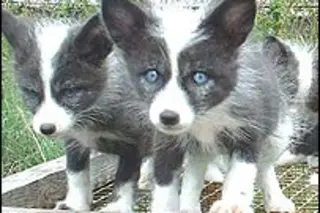Domestication has a long history. It predates the invention of writing by thousands of years. In the history of biology the study of domestication is closely connected to the emergence of experimental and theoretical biology out of the shadow of natural history. Chapter I of The Origin of Species is preoccupied with animal breeding. The various modifiers of selection, artificial, natural and sexual, are to some extent human constructions. When the constraint of human preferences and needs are removed feral populations of dogs and pigs tend to shift back toward an ancient modal wild type. I hesitate to use a term such as "primitive" because of its pejorative connotations. Wolves after all are more intelligent than dogs, and this is probably true of most domesticates in relation to their wild ancestors. This makes sense, human intelligence to some extent serves as a substitute for the reasoning skills of our domesticated ...
What makes the mice nice
Explore the genetics of domestication and its impact on tameness in domestic animals. Learn about significant QTLs influencing behaviors.
More on Discover
Stay Curious
SubscribeTo The Magazine
Save up to 40% off the cover price when you subscribe to Discover magazine.
Subscribe













